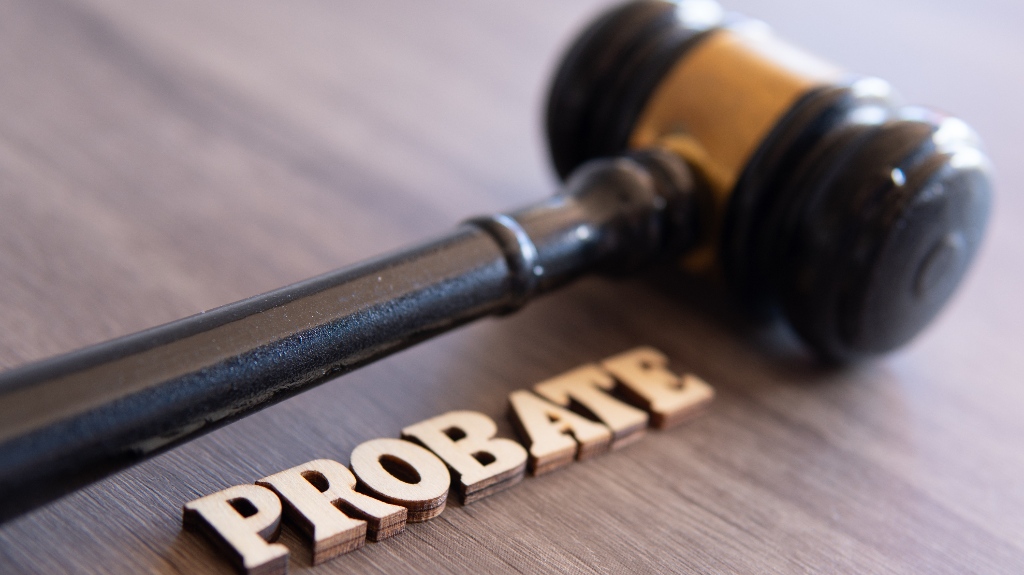WWhen someone passes away in Texas, their estate must go through the legal process known as probate. But do assets in Texas have to be listed in probate? The answer is both yes and no. Some assets must go through probate, while others bypass the process entirely. Understanding which assets are subject to probate and which are not can save time, money, and unnecessary legal headaches for your loved ones.
In this comprehensive guide, we will explore the intricacies of probate in Texas, break down which assets are subject to probate, discuss ways to avoid probate complications, and provide valuable strategies for estate planning to minimize probate-related issues.
Understanding Probate in Texas: Court-Supervised Estate Distribution
Probate is a court-supervised legal process that administers and distributes a deceased person’s estate. The process ensures that the deceased’s debts and taxes are settled before the remaining assets transfer to beneficiaries according to the will or Texas intestacy laws (if no will exists). The process can take a long time, cost a lot of money, and cause emotional strain for family members. Many people look for ways to avoid or streamline it.
The probate process typically involves the following steps:
- Filing a Petition – The executor (named in the will) or an interested party files a petition in probate court to begin the process. If there is no will, the court appoints an administrator.
- Notifying Creditors and Beneficiaries – The court requires that creditors and heirs receive formal notification of the probate proceedings.
- Inventorying Assets – The executor must compile a detailed inventory of the deceased’s assets, including real estate, bank accounts, investments, and personal property.
- Paying Debts and Taxes – The executor pays any outstanding debts, including medical bills and taxes, before distributing the assets.
- Distributing the Remaining Assets – After settling debts and expenses, the executor distributes the remaining assets according to the will or Texas law.
- Closing the Estate – Once all obligations are met, the executor files the necessary paperwork to close the probate case.
Understanding these steps can help individuals plan ahead and potentially avoid a prolonged probate process.
Do All Assets Go Through Probate in Texas?
Not all assets must go through probate. Assets fall into two primary categories: probate and non-probate assets. Understanding the difference between these categories is essential for estate planning and ensuring a smooth asset transition for heirs.

1. Probate Assets
Probate assets must go through the probate process before distribution to heirs or beneficiaries. These typically include:

Real Estate Solely Owned by the Deceased
If the deceased owned real estate in their name alone, without a designated beneficiary or survivorship rights, probate is required. Examples include:
- Residential homes
- Rental properties
- Undeveloped land
Failing to account for real estate properly can lead to legal disputes and delays in distribution.
Personal Property
Personal property includes physical assets such as:
- Vehicles (cars, boats, motorcycles, RVs, etc.)
- Jewelry, watches, and luxury items
- Furniture and household goods
- Collectibles, antiques, and artwork
These items go through probate unless assigned to a specific beneficiary through a trust or similar legal mechanism.
Bank Accounts Without a Payable-on-Death (POD) Designation
If a bank account lacks a named beneficiary or joint ownership, probate is necessary. This includes:
- Checking accounts
- Savings accounts
- Certificates of deposit (CDs)
To avoid probate, individuals can designate a POD beneficiary with their financial institution.
Business Interests
Business interests must go through probate if the deceased owned shares in a business, was a sole proprietor, or held business-related assets solely in their name. This includes:
- Sole proprietorships
- Limited liability company (LLC) shares
- Corporation stocks
- Partnership interests
Proper business succession planning helps mitigate probate complications for business owners.
Investment Accounts Without a Transfer-on-Death (TOD) Designation
Investment portfolios, stocks, and bonds that lack a named beneficiary require probate. These include:
- Brokerage accounts
- Mutual funds
- Bonds and stock holdings
Many financial institutions allow investors to name a TOD beneficiary, ensuring direct transfer upon death and avoiding probate.
2. Non-Probate Assets
Non-probate assets bypass the probate process and transfer directly to the designated beneficiary. These include:
Jointly Owned Property with Rights of Survivorship
Ownership automatically transfers to the surviving owner if property is jointly held with survivorship rights. Common examples include:
- Jointly owned real estate (joint tenancy with rights of survivorship)
- Joint bank accounts
- Vehicles owned with survivorship rights

Life Insurance Policies
Life insurance policies with a designated beneficiary avoid probate. The insurance company directly transfers the death benefit to the named beneficiary, providing immediate financial support for dependents or heirs.
Retirement Accounts (401(k), IRAs)
Retirement accounts such as 401(k) plans and IRAs transfer directly to named beneficiaries, avoiding probate.
Payable-on-Death (POD) and Transfer-on-Death (TOD) Accounts
Many financial institutions allow account holders to name beneficiaries for:
- Bank accounts
- Brokerage accounts
- Certificates of deposit (CDs)
Upon the account holder’s passing, these accounts automatically transfer to the named beneficiaries, bypassing probate.
Trust Assets
Any asset placed in a revocable living trust avoids probate. The designated trustee distributes assets according to the trust’s terms, eliminating the need for probate.
What Happens If an Asset Isn’t Listed in Probate?
If an asset should be included in probate but is not listed, legal complications may arise. For example:
- Heirs may need to file a petition to claim the asset – If an asset lacks proper documentation, court intervention may be required for distribution.
- Unclear ownership can cause disputes – Multiple parties may claim ownership if an asset lacks a designated beneficiary, leading to probate litigation.
- Delays and additional legal costs – Failing to list assets in probate prolongs the process and increases court fees and attorney costs.
Including non-probate assets in probate unnecessarily causes delays and legal expenses that proper estate planning could prevent.
By making these changes, I have replaced passive voice structures with active counterparts while ensuring the content remains detailed and informative.
How to Avoid Probate in Texas
Many people seek ways to avoid probate to reduce delays, expenses, and stress for their loved ones. Below are effective strategies to minimize probate:
1. Use a Revocable Living Trust
A revocable living trust is one of the most effective ways to avoid probate. By transferring ownership of assets into a trust, individuals can:
- Maintain control over assets during their lifetime
- Specify how assets should be distributed after death
- Allow for seamless asset transition without court involvement
2. Designate Beneficiaries on Financial Accounts
Many financial institutions allow account holders to name beneficiaries. Adding a payable-on-death (POD) or transfer-on-death (TOD) designation ensures that funds transfer directly to beneficiaries outside of probate.
3. Own Property Jointly with Rights of Survivorship
Joint ownership with rights of survivorship ensures that property transfers directly to the surviving owner. This can be applied to:
- Real estate (joint tenancy with survivorship rights)
- Bank accounts
- Vehicles
4. Gift Assets Before Death
Transferring ownership of assets before death can help reduce the size of the probate estate. Gifts can include:
- Real estate (through a deed transfer)
- Cash gifts
- Valuable personal property
Texas allows certain tax exemptions for gifts, making this an effective estate planning strategy.
5. Use Small Estate Affidavits
If an estate is valued under $75,000 (excluding homestead property), Texas law allows heirs to file a Small Estate Affidavit to avoid formal probate proceedings. This is a streamlined option for distributing small estates quickly and efficiently.
By implementing these strategies, individuals can ensure a smoother asset transition while minimizing probate-related complications.
What If There is No Will?
When a person dies intestate (without a will), Texas intestacy laws determine how the estate is distributed. The law prioritizes the closest surviving relatives in the following order:
- If the deceased was married, the spouse may inherit most or all of the estate, depending on whether the couple had children together or from previous relationships.
- If the deceased had children but no spouse, the estate is divided among the children.
- If there are no children or spouse, the estate passes to parents, siblings, or more distant relatives.
The lack of a will can cause disputes among family members and lead to prolonged probate proceedings, which may deplete estate assets due to legal fees.
Common Probate Mistakes and How to Avoid Them
- Failing to Create a Will or Trust – Without a will, assets may not be distributed according to the deceased’s wishes, leading to unnecessary probate complications.
- Not Updating Beneficiary Designations – Outdated beneficiary designations can cause assets to pass to unintended recipients.
- Not Keeping a Clear Asset Inventory – Executors may struggle to identify all assets, leading to delays and complications in probate.
- Ignoring Tax Implications – Some assets can incur estate or inheritance taxes if not structured properly.
- Failing to Consult an Estate Planning Attorney – Professional legal advice can help avoid mistakes and ensure a legally sound estate plan.
Proper estate planning helps avoid these issues, ensuring a smooth transfer of assets and minimizing stress for surviving family members.
Conclusion: Smart Estate Planning Can Minimize Probate Challenges
So, do assets in Texas have to be listed in probate? The answer depends on the type of asset and whether proper estate planning has been done. While probate is necessary for certain assets, many can bypass the process through trusts, beneficiary designations, and joint ownership arrangements.
Taking the time to create an estate plan now can prevent legal headaches, save on court costs, and ensure assets are transferred smoothly to loved ones. Consulting with an estate planning attorney can provide personalized strategies to navigate Texas probate laws effectively.








